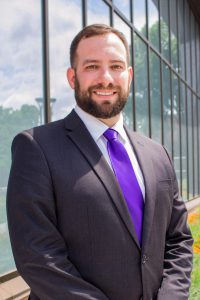
The Journey Begins
Beginning the journey towards a terminal degree takes courage. Doctoral students face a variety of obstacles ranging from personal to institutional (Rigler et al., 2017). The obstacles contribute to attrition rates that reach 50%-70% for online doctoral programs (Terrell, Snyder, Dringus, & Maddrey, 2012). On the first day of Academic Residency in the Doctor of Education program at Winona State University, observing students in the classroom confirmed that Cohort 1 is a courageous and determined group. Over the following days, students’ confidence in one another grew through practices designed to mitigate high attrition rates: developing relationships, receiving feedback, and writing often (Holmes, Trimble, & Morrison-Danner, 2014). These practices, paired with courage and determination, will motivate Cohort 1 to beat the odds and walk everyone across the stage.
Holmes, B., Trimble, M., & Morrison-Danner, D. (2014). Advancing scholarship, team building, and collaboration in a hybrid doctoral program in educational leadership. Journal of College Teaching & Learning, 11, 175-180. Retrieved from http://www.cluteinstitute.com/ojs/index.php/TLC/article/view/8855/8834
Rigler Jr., K. L., Bowlin, L. K., Sweat, K., Watts, S., & Throne, R. (2017). Agency, socialization, and support: A critical review of doctoral student attrition. Online Submission.
Terrell, S. R., Snyder, M. M., Dringus, L. P., & Maddrey, E. (2012). A grounded theory of connectivity and persistence in a limited residency doctoral program. The Qualitative Report, 17(31), 1-14. Retrieved from http://www.nova.edu/ssss/QR/QR17/terrell.pdf
Problem of Practice
Many student affairs professionals do not possess requisite capacity or resources, much less recognize the burden and obligation, to exhibit practices sufficient for satisfying accreditors (Levy, Hess, Thomas, 2018). Through formal education or professional development, assessment skill development and use of resulting data are not currently a significant priority in the field (Kuh et al., 2015). Student affairs’ ability to demonstrate value through assessment is paramount to address changing accreditation standards (Blimling, 2013). Henning and Roberts (2016), suggest that student affairs professionals need to understand the transition of the field from student services to student development and the crucial role of assessment.
Blimling, G. S. (2013). Challenges of assessment in student affairs. New Directions for Student Services, 2013(142), 5-14.
Henning, G. W., & Roberts, D. (2016). Student affairs assessment: Theory to practice. Stylus Publishing, LLC.
Kuh, G. D., Ikenberry, S. O., Jankowski, N. A., Cain, T. R., Hutchings, P., & Kinzie, J. (2015). Using evidence of student learning to improve higher education. John Wiley & Sons.
Levy, J., Hess, R., & Thomas, A. (2018). Student affairs assessment & accreditation: History, expectations, and implications. The Journal of Student Affairs Inquiry, 4(1), 4284.
Research Questions
Deficiencies of student affairs practitioners hinder institutional assessment efforts (Levy, Hess, Thomas, 2018; Seagraves & Dean, 2010). Formal training and professional development opportunities fall short of providing the field of student affairs with assessment-ready practitioners (Kuh et al., 2015). To identify a path to assessment-ready professionals, an understanding of the knowledge and perceptions of entry-level student affairs professionals should be developed. The following three research questions will be used to explore the issue:
RQ1: How do entry-level student affairs professionals perceive assessment?
RQ2: What are entry-level student affairs professional’s understanding of the accreditation process?
RQ3: What do student affairs professionals know about the relationship between assessment and accreditation?
Kuh, G. D., Ikenberry, S. O., Jankowski, N. A., Cain, T. R., Hutchings, P., & Kinzie, J. (2015). Using evidence of student learning to improve higher education. John Wiley & Sons.
Levy, J., Hess, R., & Thomas, A. (2018). Student affairs assessment & accreditation: History, expectations, and implications. The Journal of Student Affairs Inquiry, 4(1), 4284.
Seagraves, B., & Dean, L. A. (2010). Conditions supporting a culture of assessment in student affairs divisions at small colleges and universities. Journal of Student Affairs Research and Practice, 47(3), 307-324.